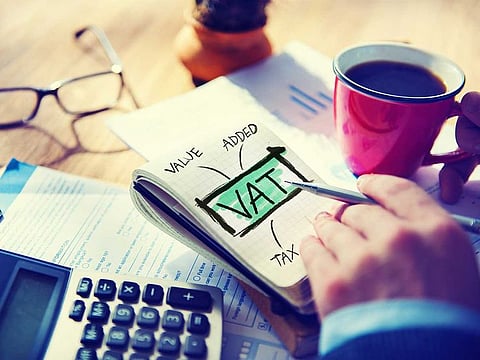The do's and don'ts in charging influences and influencers UAE's 5% VAT
Federal tax authority has charted out how these payments should be made and when

The recent publication of a Basic Tax Information Bulletin by the Federal Tax Authority has drawn attention to the VAT registration requirements for artists and social media influencers. The concepts on which this is based equally applies to other freelancers.
Under the VAT legislation, any person conducting business in the UAE and exceeds the mandatory registration threshold of Dh375,000 of taxable supplies is required to apply. The definition of business is broad and includes all activities conducted by any person on an ongoing and independent basis.
As such, activities carried out under an employment contract are not within the scope of VAT. Activities of artists, social media influencers and other freelancers fall in principle within the business definition. Although it is a broad definition, it is not always clear when an activity qualifies as a business.
Also Read: VAT in Oman: What’s taxable, what’s not
Not for one-offs
For example, an amateur artist making a one-off sale of one painting may not be regarded to be in business and not required to register for VAT - even if the painting is sold for more than the VAT registration threshold. In the same way, a person selling a secondhand luxury car should not be considered to be in business.
A complicated aspect highlighted by the FTA in its Bulletin is the VAT treatment of barter transactions. A barter transactions is an exchange of goods or services between two or more parties without the use of money.
When an artist or influencer receives free products to try or an experience (such as a free night at a hotel or free access to an event), the free-of-charge product or experience is considered payment for the influencer's services. The value of these goods or services should be included when calculating the VAT registration threshold.
Equal billing
When the influencer is registered for VAT - or required to do so – the tax should be accounted for on the market value of the barter transaction. For example, when an influencer is provided a night stay at a hotel in exchange for social media exposure, the hotel is required to charge VAT on the normal room rate and the influencer the same amount for providing the social media services.
VAT charged to the artist or influencer should be recoverable - provided that the goods or service procured are used for the taxable business activities. However, VAT charged on certain entertainment services cannot be recovered even if these are used for business purposes.
With a VAT registration comes a lot of responsibilities. First of all, the VAT registered person is required to charge 5 per cent on the value of its services (unless an exemption or zero rating applies - but this is unlikely).
There is a requirement to issue an invoice, collect VAT, report the VAT on the VAT return and remit the VAT to the authorities. In case of a barter transaction where no money is exchanged, it may not be possible to collect the VAT from the customer. In which case, the VAT is effectively paid from the person's own funds.
Self billing
In respect of invoicing, the legislation allows parties to agree on self-billing arrangement, provided the customer is registered for VAT. Under a self-billing arrangement, the customer can issue an invoice to the self under the name of the service provider.
Although this would reduce some of the compliance burden, the artist or influencer would still be required to collect (if possible), report and remit the VAT. Artists, influencers and other freelancers are urged to consider whether they are required to register for VAT.
Sign up for the Daily Briefing
Get the latest news and updates straight to your inbox








